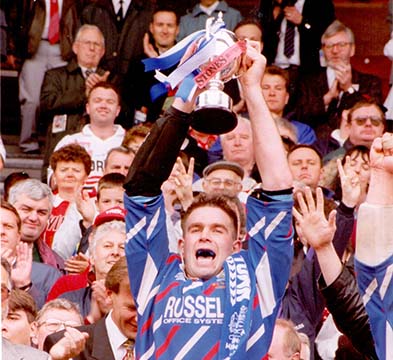 Colin ‘Buck’ Armstrong is one of the great Cumbrian players of the last 50 years.
Three times he faced the Kangaroos and twice he captained Workington at Old Trafford.
Professionally, he started out at Carlisle before making a name for himself in the top division with Hull Kingston Rovers.
Battling for most of his career with type-1 di
Colin ‘Buck’ Armstrong is one of the great Cumbrian players of the last 50 years.
Three times he faced the Kangaroos and twice he captained Workington at Old Trafford.
Professionally, he started out at Carlisle before making a name for himself in the top division with Hull Kingston Rovers.
Battling for most of his career with type-1 di Rugby League Heroes: Colin ‘Buck’ Armstrong
 Colin ‘Buck’ Armstrong is one of the great Cumbrian players of the last 50 years.
Three times he faced the Kangaroos and twice he captained Workington at Old Trafford.
Professionally, he started out at Carlisle before making a name for himself in the top division with Hull Kingston Rovers.
Battling for most of his career with type-1 di
Colin ‘Buck’ Armstrong is one of the great Cumbrian players of the last 50 years.
Three times he faced the Kangaroos and twice he captained Workington at Old Trafford.
Professionally, he started out at Carlisle before making a name for himself in the top division with Hull Kingston Rovers.
Battling for most of his career with type-1 di 